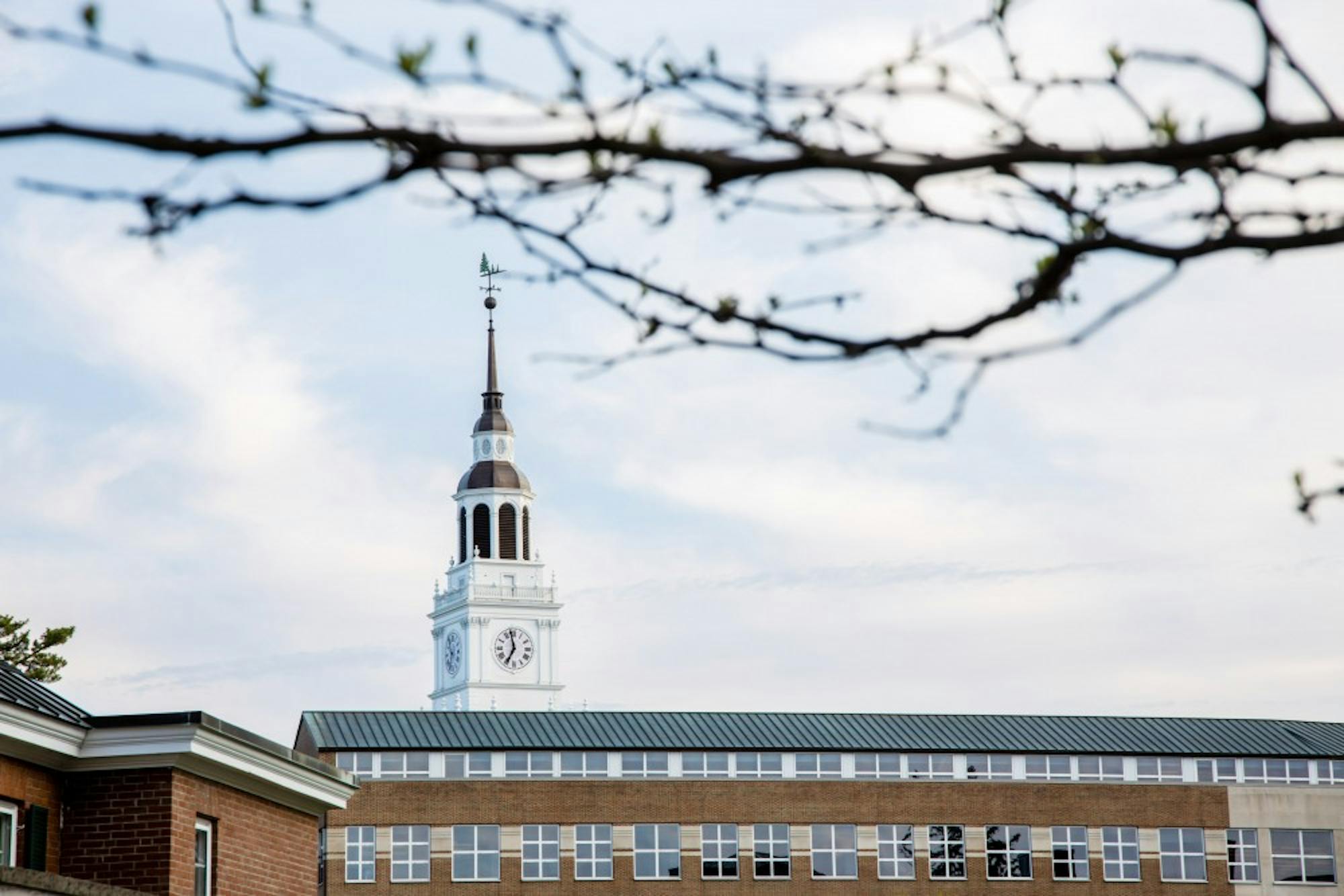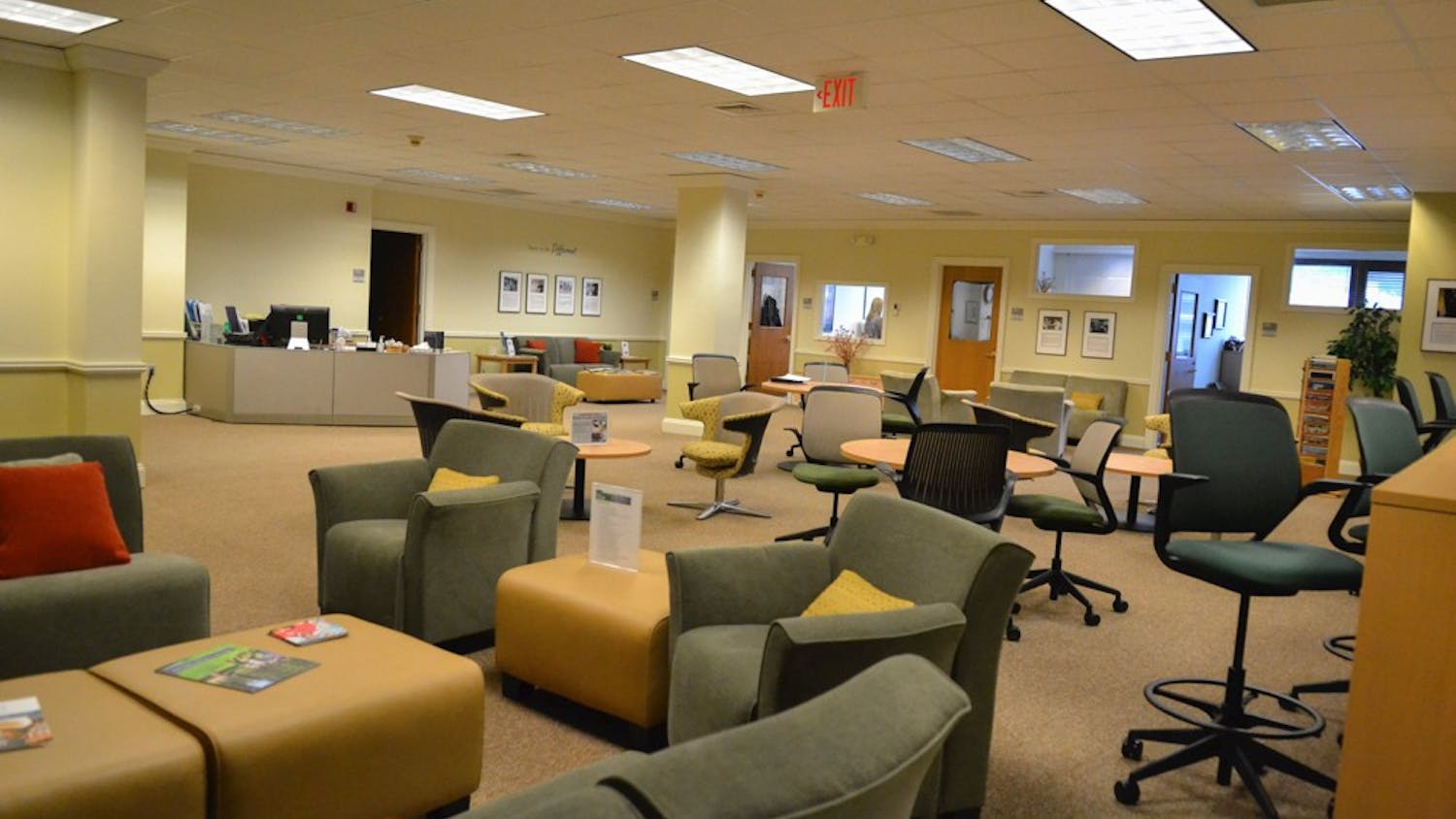As graduation nears, members of the Class of 2020 are struggling to get and keep jobs amid the COVID-19 pandemic and the corresponding financial downturn.
In a survey conducted by The Dartmouth between May 13 and May 24, 66 percent of graduating seniors indicated that their post-graduation plans had been affected by COVID-19 — whether related to a more difficult job search, a later start date, a remote work format or other factors. However, the survey indicated that a similar percentage of seniors have secured post-graduation jobs to last year’s percentage of the graduating class, and this year’s seniors plan to work in similar fields as past years’ graduating seniors.
The Dartmouth’s survey found that of 271 respondents, 65 percent are entering the workforce following graduation, similar to past years’ survey results — in 2019, it was 73 percent, and in 2018, it was 59 percent. The most common industries among seniors with post-graduation jobs are finance and banking, then consulting, followed by technology and engineering. These three fields account for 74 percent of post-graduation employment.
Angelina Choi ’20, an incoming portfolio analyst at the investment firm Brown Advisory, said the prevalence of these kinds of jobs among seniors was “expected.”
“Dartmouth doesn’t do a great job of advertising the diversity of jobs out there,” Choi said. “[The Center for Professional Development] definitely pushes students to feel pressured into conforming to what seems like the typical path for a Dartmouth student, or scares them from exploring other things that may align with their interests, passions and talents more.”
Monica Wilson, interim director for the CPD, said that many students are going into those industries because of early recruitment patterns.
“Employers who are able to make [job] offers far in advance are in those sectors, so students were able to secure those opportunities pre-COVID,” Wilson said.
Students in finance, consulting and technology jobs tend to obtain junior summer internships during sophomore summer recruiting and later accept return offers, or go through recruiting during junior fall or winter. Students in jobs with later recruiting timelines or less structured recruiting schedules have had more difficulty finding jobs during the COVID-19 pandemic.
Callie Page ’20, who is looking for a job in UI/UX design, said that there is no “formal recruiting process” for those not interested in certain fields like finance.
“People who aren’t interested in the more financial jobs are left to their own devices,” Page said, adding that students tend to have to network with alumni.
She added that many seniors counted on having the spring as a time to look for jobs. This year, however, Page said that “[i]t feels like [recruiting is] put on hold, and people are still looking [for jobs] but not getting anywhere.” She added that it may be difficult for students to find jobs if companies are putting hiring and training — which may be especially difficult to conduct remotely — “on pause” to focus resources elsewhere.
Choi said that while many seniors still have their jobs, their work plans have been affected in other ways — like a change in start date or working remotely rather than in an office.
Vineela Kanagala ’20, an incoming health care consultant at Putnam Associates in Boston, said that students who have jobs — or tentative plans that may be affected by COVID-19 — have “similar anxieties” to those who don’t. Choi said that many who do have jobs are worried about losing them given the job market difficulties.
“It’s hard to think anyone is safe [from losing their jobs],” Choi said.
Students who will be working remotely must decide where to live post-graduation, given the possibility that their companies may expect them to come into the office in the near future.
Choi, who is quarantining in Georgia with her family, plans to move to Boston for her job, even though her position will initially be remote.
“At a certain point, [seniors] are going to have to be settled in and ready to go once the offices are ready to go," Choi said, adding that “it’s just nice to have some time to move in.”
Other students, like Kanagala, have had their start dates pushed back. Should her employer confirm in-person plans, she will move to Boston for work before her new October start date, four months after her planned start in June. Otherwise, she said that she will consider staying home in Connecticut while working remotely.
Nick Blasey ’20 said students in some industries — especially those that rely on long-term projects and long-term clients — seem to have more job security than others during the COVID-19 pandemic.
Blasey, an incoming build engineer for the laser communications team at SpaceX, secured a job offer last fall. He said that he “feel[s] fortunate that a lot of these space projects are long-term contracts that have been negotiated a long time ago,” so SpaceX and his job have not been affected as much by the economic downturn.
Wilson forecasts that there will be significant changes in the job market over the next 10 years.
“For the next few years, there are definitely industries that will take time to come back [from COVID-19] and others that have greatly benefited,” she said.
According to Wilson, industries “where face to face, close contact is required” will probably have to contend with the lingering habits formed by social distancing. Meanwhile, “anything that can support remote work” — from remote entertainment and hospitality to distance learning software — will see the greatest benefit, she said.
From Wednesday, May 13 to Sunday, May 24, The Dartmouth fielded an online survey of Dartmouth senior students on their opinions and experiences at the College. The survey was sent out to 1,078 seniors through their school email addresses. 271 responses were recorded, resulting in a 25.1 percent response rate. Using administrative data from the College’s Office of Institutional Research, responses were weighted by gender, race/ethnicity, sexual orientation, Greek affiliation and international student status. Weighting was done through iterative post-stratification (raking). Survey results have a margin of error +/- 5.15 percentage points.





